I like the internet. There, I said it. I spend my entire day writing about the internet, and then in my leisure time, I read books about how the internet shapes our lives. I might have a work-life balance problem, but I can’t help it. I mean, music journalists still listen to music, right? Chefs still cook at home? So I can enjoy some critical thinking about the internet in my spare time, as a treat. After all, internet culture is just flat out culture at this point, and hey, who doesn’t consume culture?
Should I go outside and touch grass? Probably! But I can touch grass while reading a book, duh. Plus, I’m pretty sure that none of these books mention Elon Musk, so if that’s not a sell for you in this day in age, I don’t know what is.
This article contains links to affiliate partners where available. When you buy through these links, TechCrunch may earn an affiliate commission.
“README.txt” by Chelsea Manning
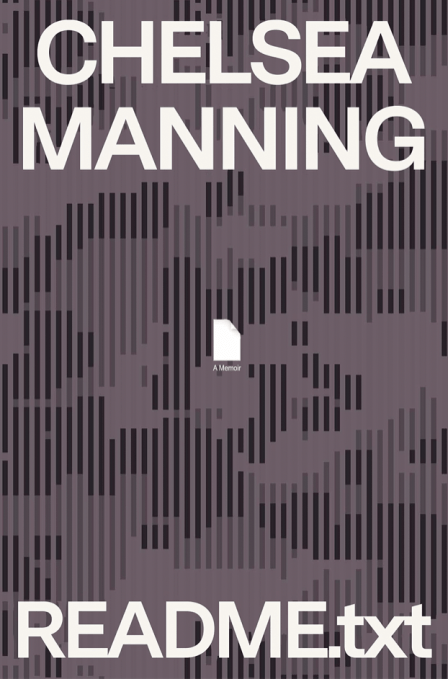
Image Credits: Macmillan
“The free internet at Barnes & Noble is … not fast,” begins Chelsea Manning’s memoir. In the midst of a snowstorm in early 2010, Manning sent over 700,000 classified and sensitive documents to WikiLeaks that she smuggled off of U.S. Army computers while serving as an intelligence analyst. Of course, this is a story we already know, since it’s been in and out of the news for the last 12 years: Manning’s leaks revealed the true nature of U.S. military action in Iraq and Afghanistan.
Manning’s book lets us hear her side of the story: how homophobia and abuse in her childhood home drove her to join the army in the first place; the pain she endured while serving in the army as a then-closeted transgender woman in the era of don’t ask, don’t tell; and how she risked her life to share information that she believed the public desperately needed to access.
Manning’s life is far from ordinary — she’s a famous, highly controversial whistleblower who spent seven years in prison and publicly transitioned while in custody. But the internet is a surprisingly ordinary through-line in her story (she even describes herself as “extremely online” in the book). Like so many queer people, Manning found solace and community on the internet, where anonymity helped her explore her identity when it wasn’t safe (or legal, in the case of the military at the time) to be herself IRL.
Price: $19 from Amazon
“Everything I Need I Get From You” by Kaitlyn Tiffany
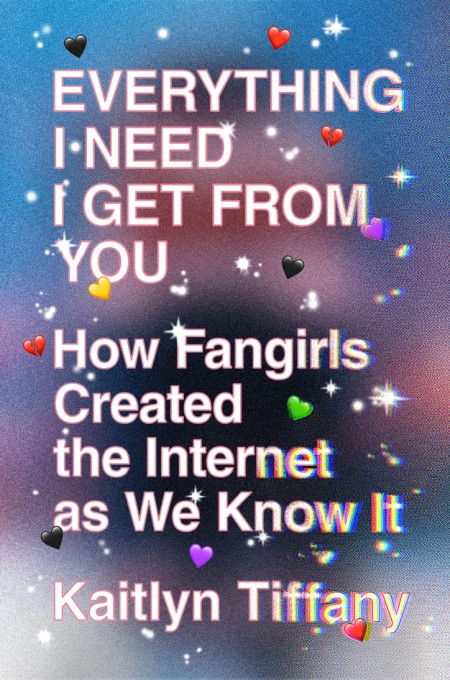
Image Credits: Macmillan
I was never a One Direction stan, but as someone who simply existed on the internet in the early 2010s, I sure felt the influence of those five British boys. No one could escape One Direction at the height of their popularity, and as Kaitlyn Tiffany argues in “Everything I Need I Get From You,” this wasn’t just an era of silly girls screaming their heads off because Harry Styles is cute. As they forged community and manipulated chart numbers together, One Direction fans made it abundantly clear that nothing is more powerful than a highly coordinated campaign of teenage fans with internet access. Remember when K Pop fans pranked a Tulsa Trump rally with thousands of false registrations? Or just weeks ago, when Taylor Swift fans directed politicians’ attention to the potential antitrust problems at Ticketmaster? Fan culture is ubiquitous on the internet and shapes how we use it — if you disagree, you’re not looking hard enough.
One Direction fandom wasn’t all sunshine and rainbows, though. Tiffany writes about the sinister undercurrents of some fandom spaces, including the conspiracy theory of Larry Stylinson, which claims that Harry Styles and Louis Tomlinson were secretly in love but barred by their management from going public. Proponents of this theory crossed … several lines, and Tiffany points out how the way they spread the theory — like convincing each other that the media is spreading fake news to cover up the truth of the affair — mirrors the way that more dire political conspiracies take root. Yikes.
Even if you were never a “directioner,” this book is a deeply engaging read. And, I’m sorry, but is there any song ever written that’s catchier than “What Makes You Beautiful”? You don’t know-oh-oh!
Price: $17 from Bookshop.org
“Monster Kids: How Pokémon Taught a Generation to Catch Them All” by Daniel Dockery
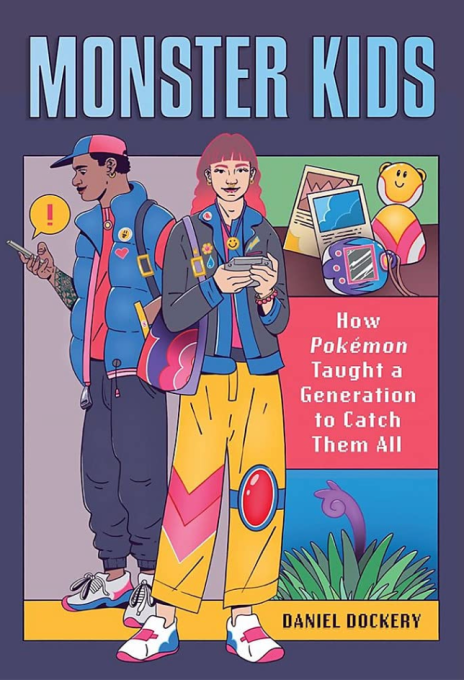
Image Credits: Running Press
I love Pokémon almost as much as I love the internet. So, naturally, I was delighted to get my hands on a copy of Daniel Dockery’s nonfiction book “Monster Kids,” which chronicles the phenomenon surrounding Pokémon (and by extension, the “monster collecting” genre of media).
While reading “Monster Kids,” I found myself live-texting my friends fun facts that I never knew about Pokémon. My personal favorite bit of trivia is that the Pokémon franchise was initially struggling to catch on in the West, so in an elaborate marketing stunt, Nintendo held an event in Topeka, Kansas called … ToPikachu. At the event, 700 Pikachu plushes were dropped from the air, but that wasn’t all — 10 skydivers also descended from an aircraft, then hopped into Pikachu-branded cars and drove away, oozing with style.
This book is full of jaw-dropping anecdotes about the early days of the Pokémon franchise (come on … Topikachu!?), but Dockery unifies these stories to comprehensively explain how the exceptionally-mega-popular video game franchise got to where it is today. And where is it today? Still as mega-popular as ever, and with the same amount of glitches. You still can’t find a Mew under the truck, though.
Price: $16 from Amazon
“She Memes Well” by Quinta Brunson

Image Credits: Harper Collins
If you’re not watching “Abbott Elementary,” what are you doing? But before she was the star and showrunner of the ABC sitcom, Quinta Brunson was a meme.
Well, she was more than that. She was a writer and comedian trying to make it in a cutthroat LA industry. But she got her big break when she started posting a series of clips as “the girl who’s never been on a nice date,” playing a character who’s flattered by men doing the bare minimum. Remember “he got money?” That girl is now an Emmy winner.
“She Memes Well” is a series of comedic, yet emotional essays that chart Brunson’s rising star — she writes about her (good and less-good) experiences in the Philly public school system, failed relationships, learning to cook, you name it. Like “Abbott Elementary,” Brunson’s essays are laugh-out-loud funny, yet they also illuminate the systemic barriers that she had to face to become a Philly kid with an Emmy. Go Quinta, and go birds!
Price: $14 from Harper Collins
“How Sex Changed the Internet and the Internet Changed Sex” by Samantha Cole
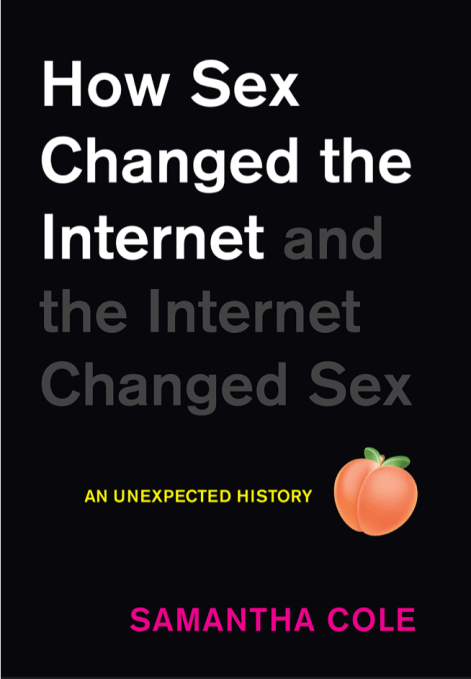
Image Credits: Workman
We’re not kidding when we say that sex is what powers innovation on the internet. VICE writer Samantha Cole’s new nonfiction book is proof of that: Do you know what a Playboy centerfold and the creation of the JPEG have in common?
I read a galley of Cole’s book while preparing to interview the CEO of OnlyFans at TechCrunch Disrupt. It was a good way to brush up on legal issues impacting sex on the internet, like Section 230 and SESTA/FOSTA — but more than anything, it was just a really interesting read that gave me a much deeper appreciation for the history of the internet and sex. I learned about the stories of internet pioneers like Jennifer Ringley, who’s regarded as either a conceptual artist or the first camgirl, depending on who you ask. Ringley wrote a script that took photos through a webcam in her college dorm and posted them online — this started in 1996, far before streaming live video would have been an option. Ringley didn’t censor private moments in her life, but it wasn’t necessarily a sexual project: just a person living her life. Yet after seven years of meticulously documenting her life, Ringley shut down JenniCam after PayPal updated its guidelines to prohibit nudity.
Ringley’s story is just one fascinating internet artifact retold in Cole’s book. As the title of the book suggests … turns out that sex changed the internet!
Price: $30 from Amazon
“Because Internet” by Gretchen McCulloch
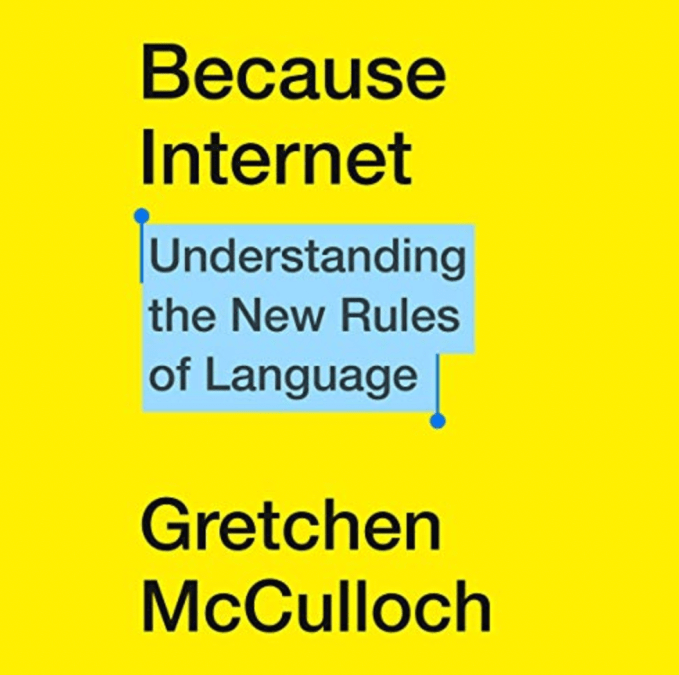
Image Credits: Riverhead Books
As we watch Twitter fall apart in slow motion, I’m thinking of something I learned in “Because Internet”: Linguistic researchers love Twitter! Think about it. How often have we had real-time access to data about how people from all around the world talk and type?
“Because Internet” is a geeky, nerdy academic book, but McCulloch writes in such an entertaining, approachable way that it makes me wish I had taken a linguistics class in college. Then again, your typical intro linguistics class probably doesn’t interrogate the language of memes and the punctuation of texts so seriously. But if you have a friend who is constantly inventing new forms of punctuation to denote sarcasm, this book is a must-gift.
Price: $16 from Bookshop.org
